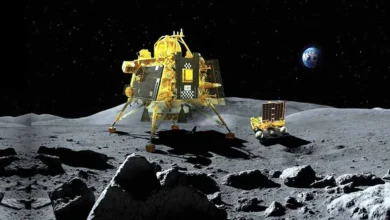Scientists say time appeared to run slower in the early universe
About a billion years after the Big Bang, time appeared to flow five minutes slower.

Scientists have noted that time appeared to run five times slower when the universe was about a billion years old and that things moved in slower motion as compared to now. They conducted the study using observations of a ferocious class of black holes called quasars. Quasars, supermassive black holes at the centres of distant galaxies, are thought to be the brightest and most powerful objects in the universe.
In the study which was published in the journal, Nature Astronomy identified time dilation in a sample of 190 quasars for over 2 decades in multiple wavebands. Researchers had previously used observations of very bright exploding stars called supernovas as cosmic clocks to show that time used to run twice as slow when the university was half of its current age.
Geraint Lewis, an astrophysicist at the University of Sydney and the lead author of a new study said, “While everything looks like it’s slowed down”, Lewis emphasised that the experience of time in these distant places was not different.” “If I could magically transport you back 10 billion years and drop you next to one of these quasars, and you’ve got a stopwatch, time would just be normal”. “One second would be one second,” he added.
Mr Lewis also said that quasars are useful beacons for charting the universe, but they proved to be much more difficult to turn into cosmic clocks than supernovas. Previous attempts to use quasars to measure time dilation had failed, leading to some “strange suggestions,” Mr Lewis said. These included theories that perhaps quasars were not as distant as had been thought, or even that “something fundamental was broken” in cosmology. But the new research “puts everything back in the right place,” Mr Lewis said. “It also confirmed that Einstein is right again,” he added.
The researchers were also able to succeed where other attempts had fallen short because they had far more data on quasars and recent advancement in the statistical understanding of randomness also helped, according to Mr Lewis.



